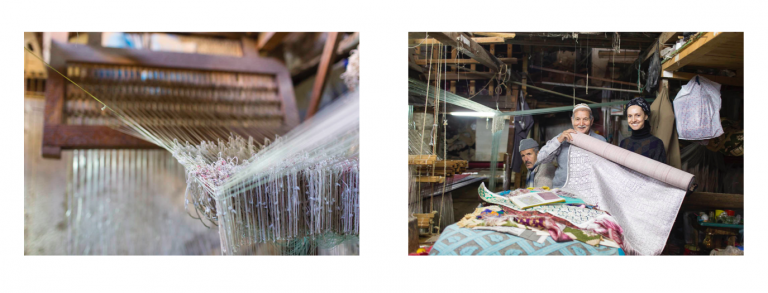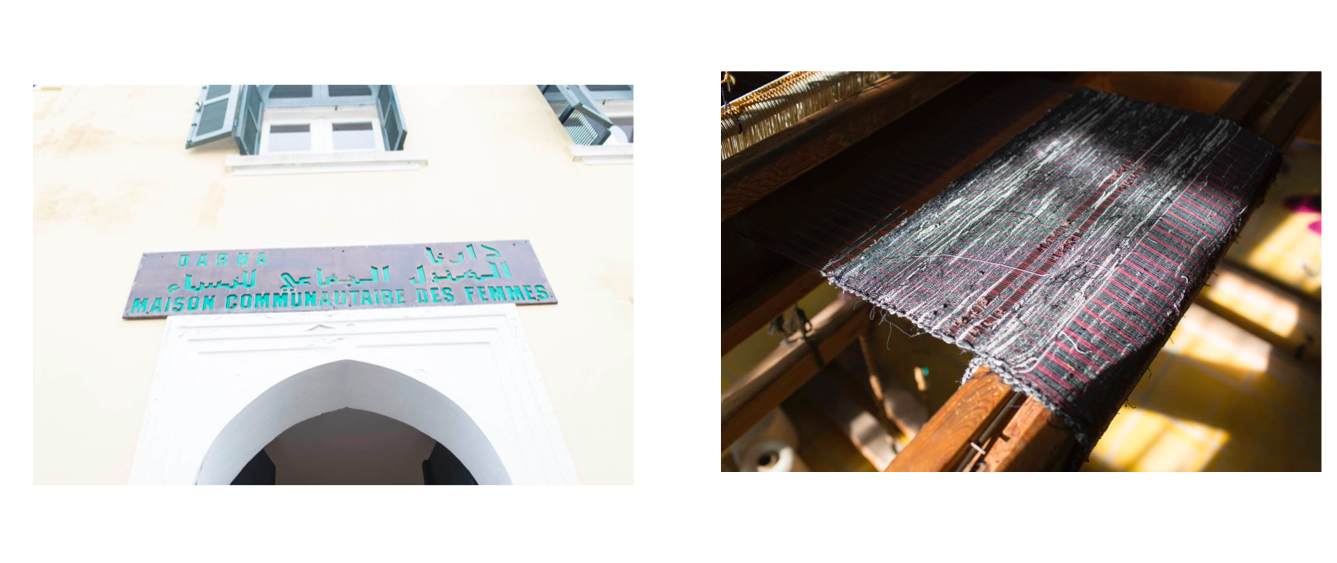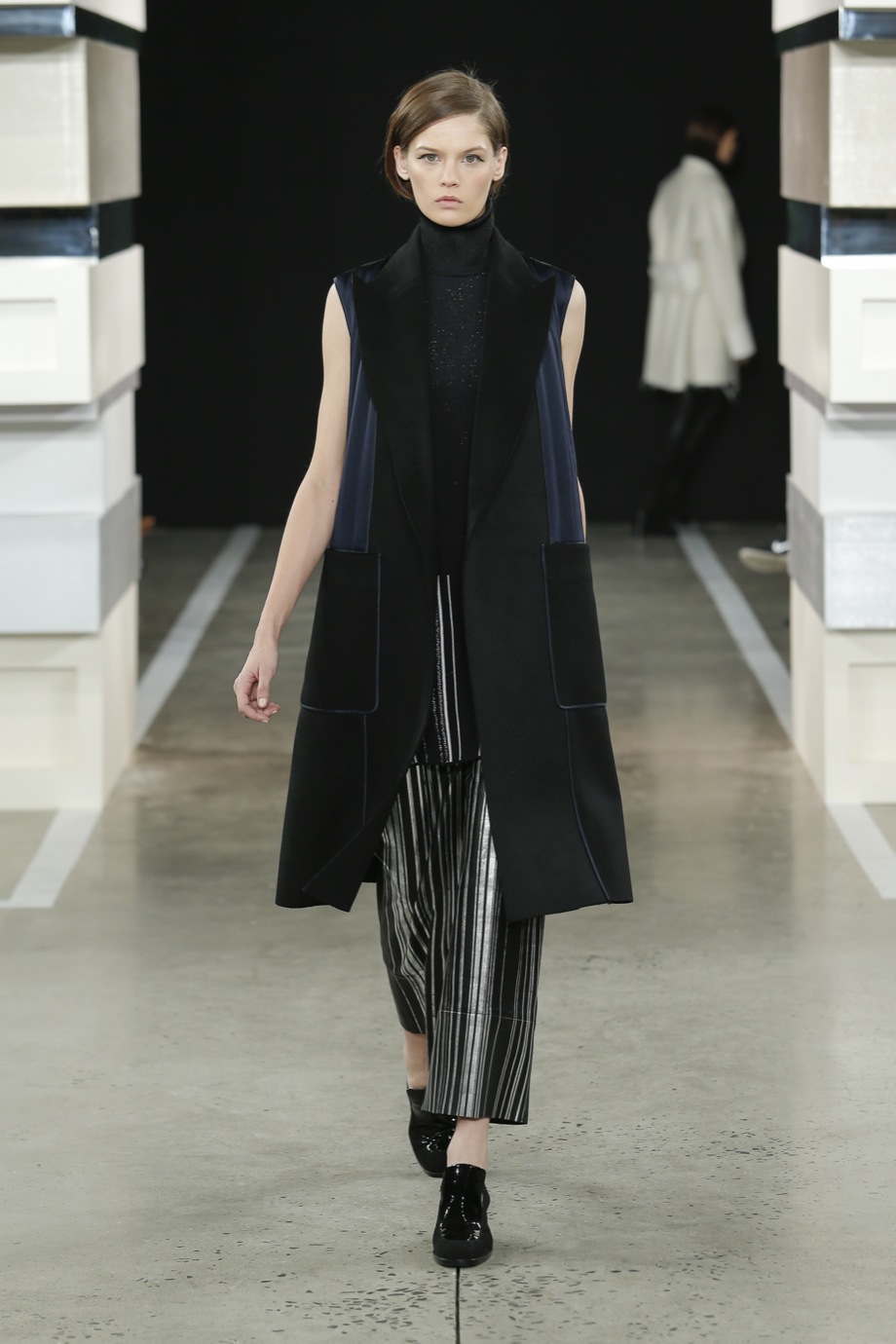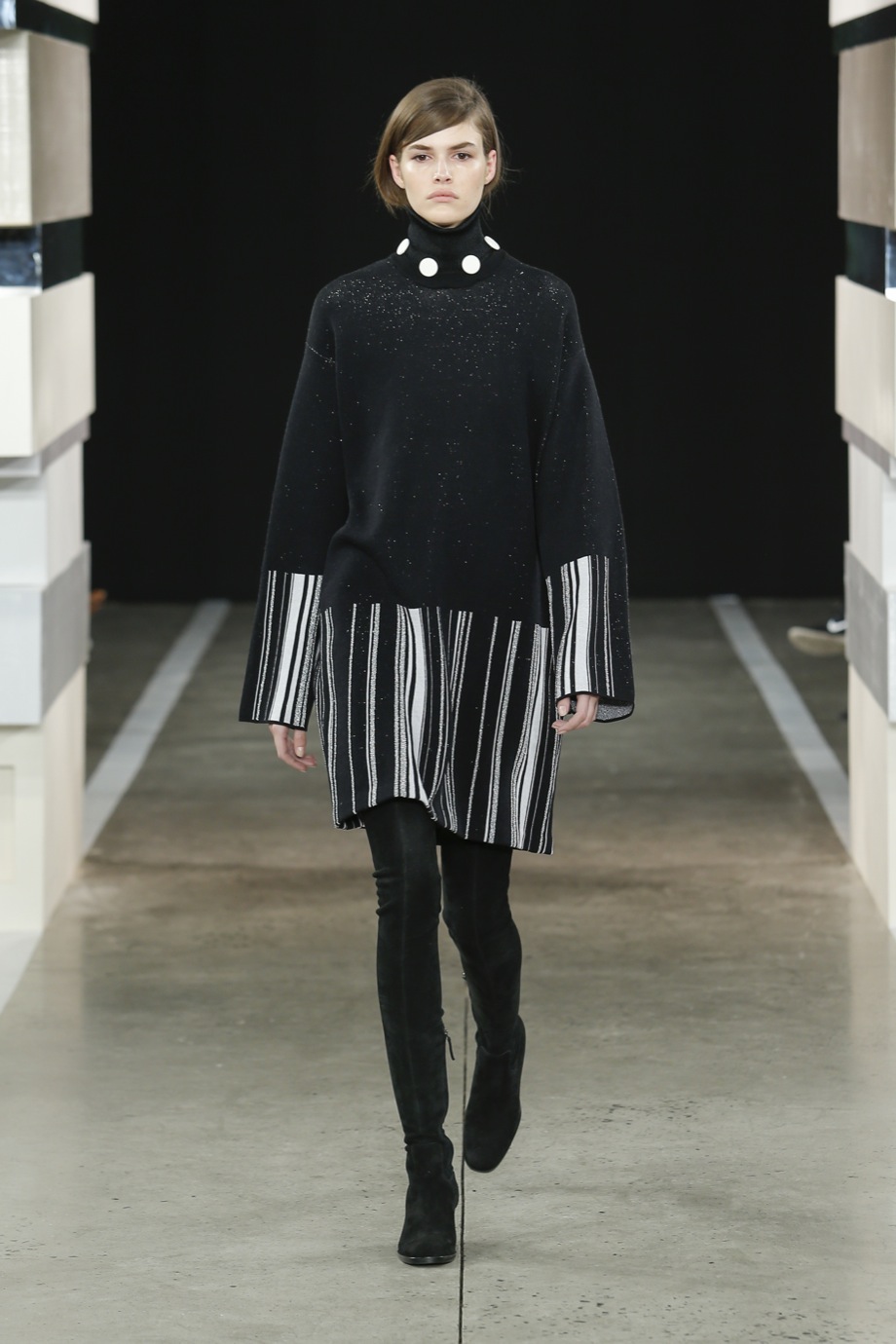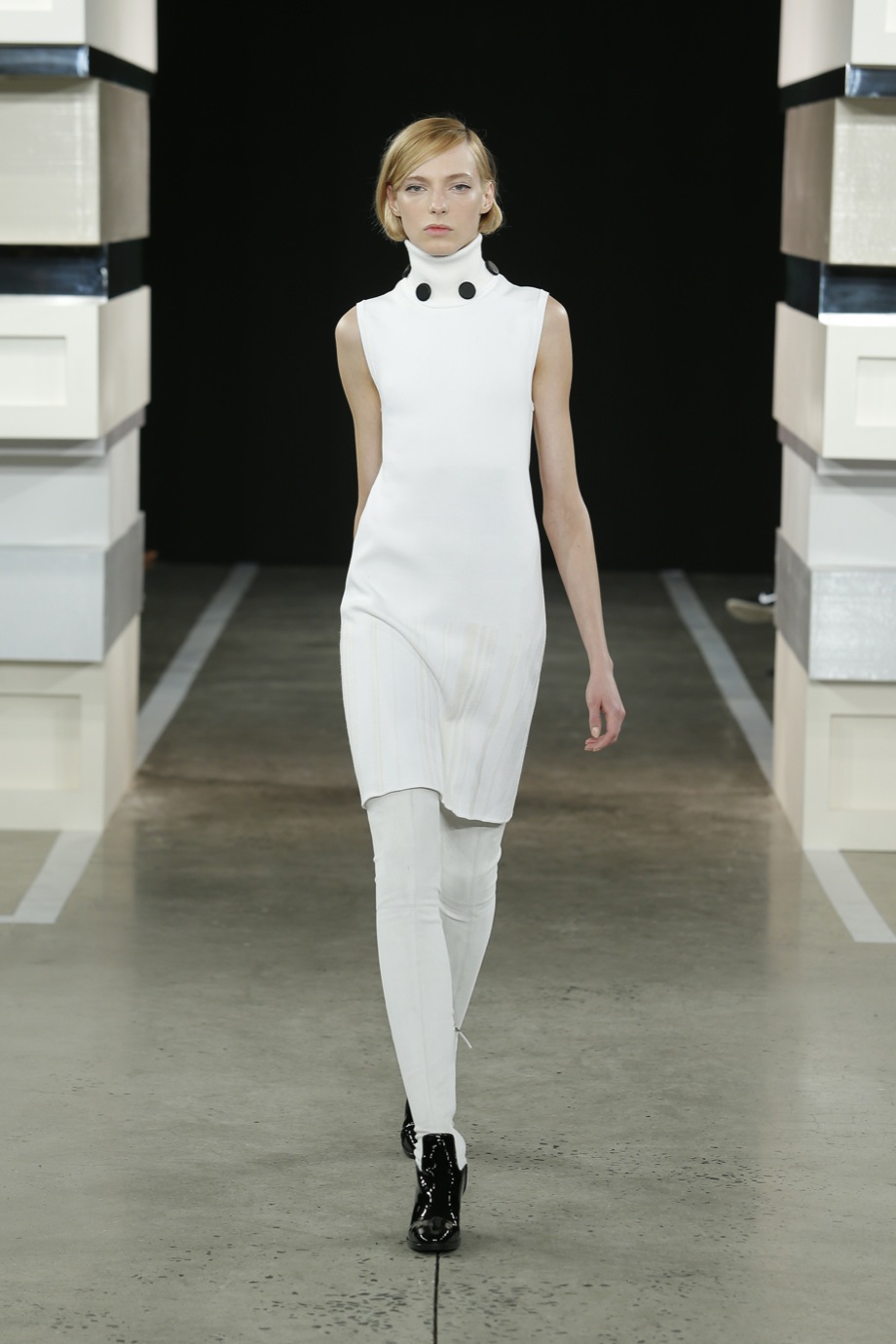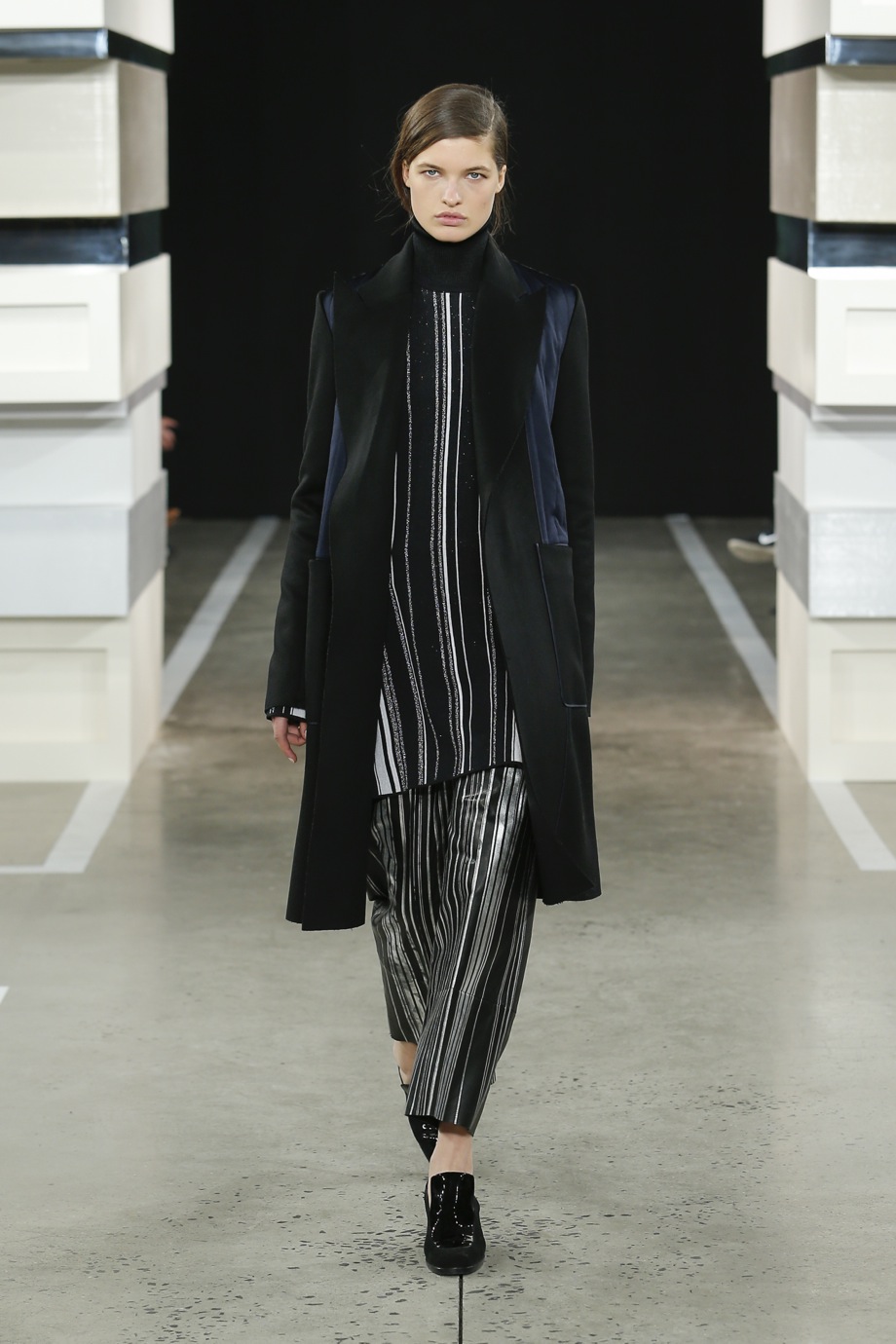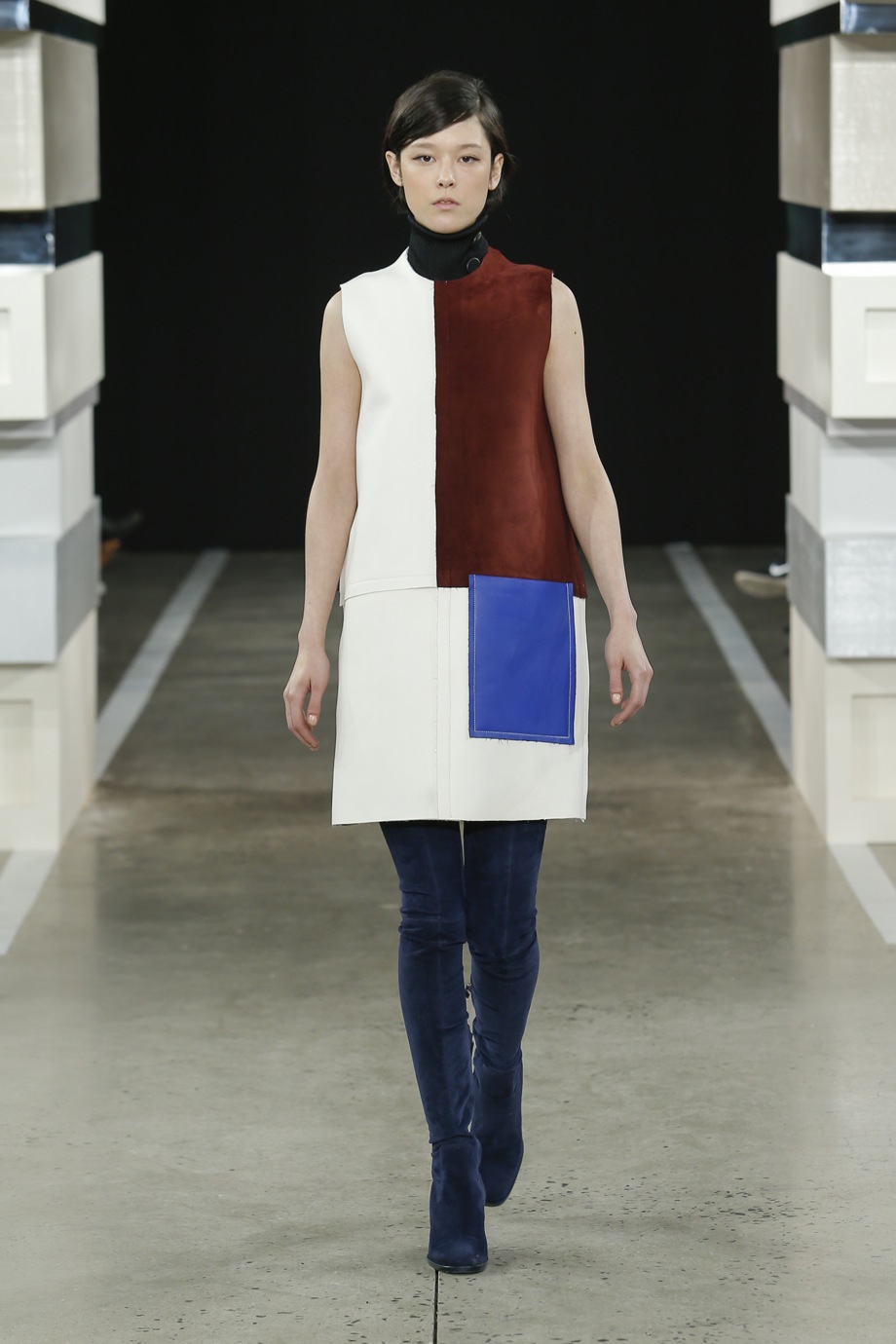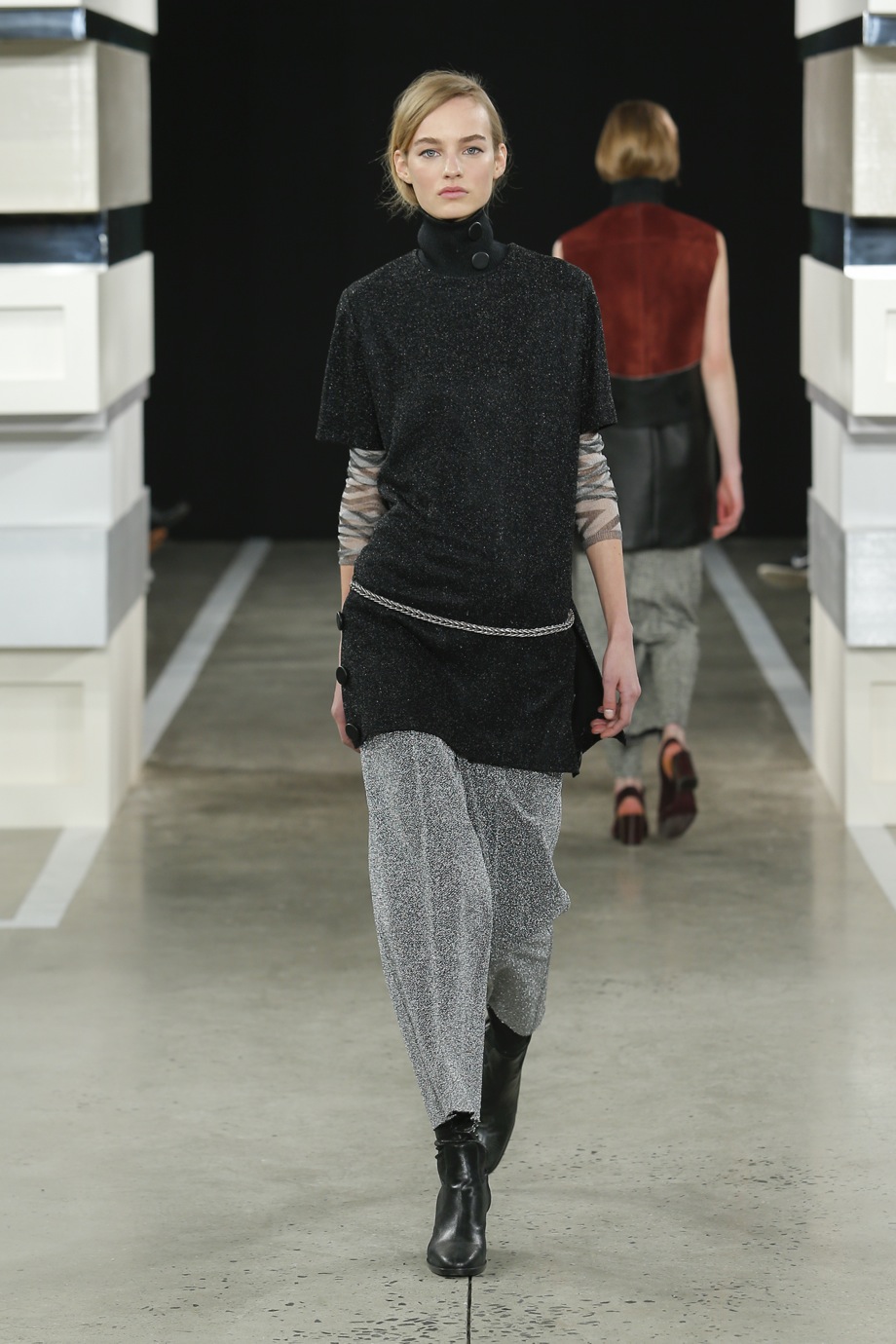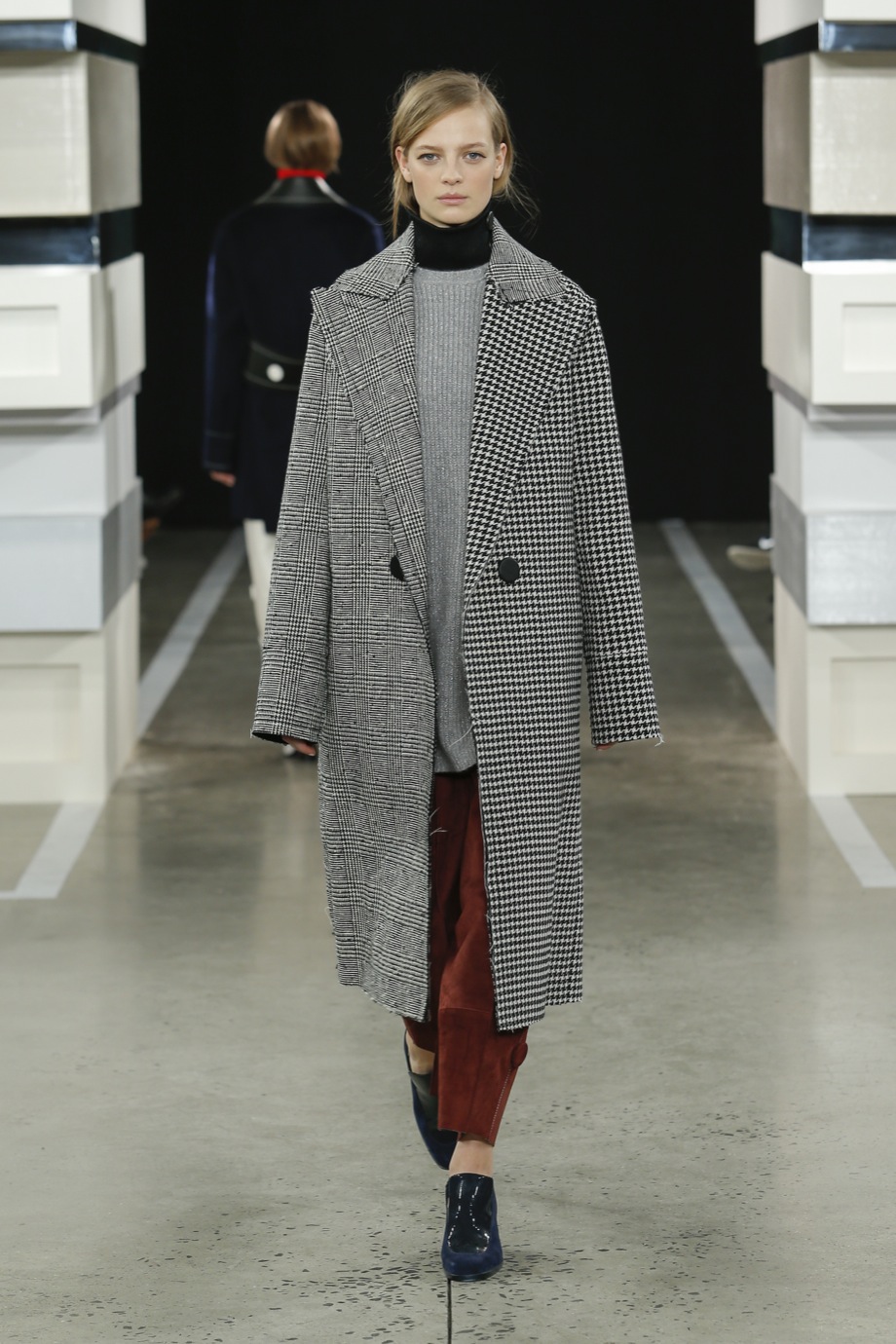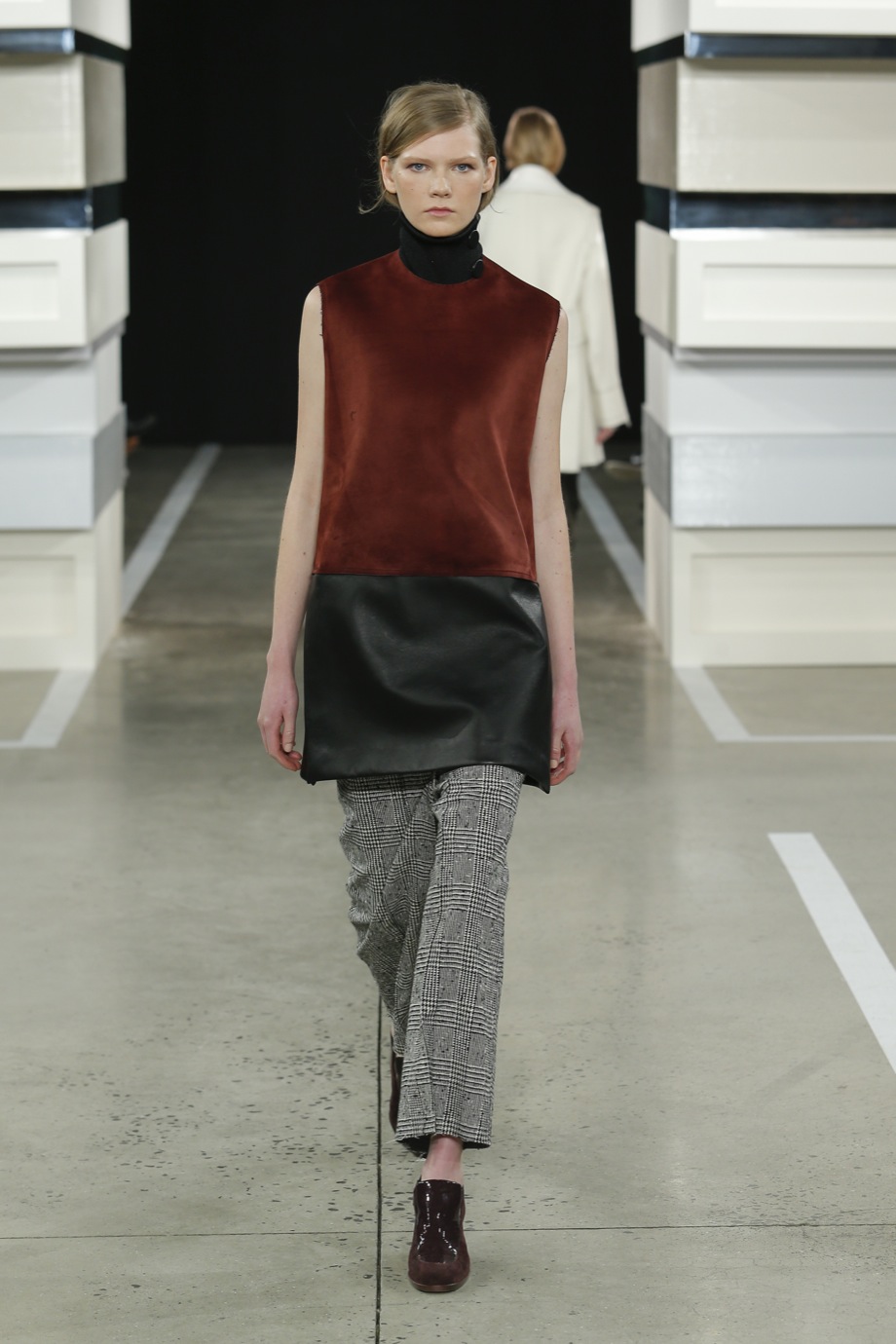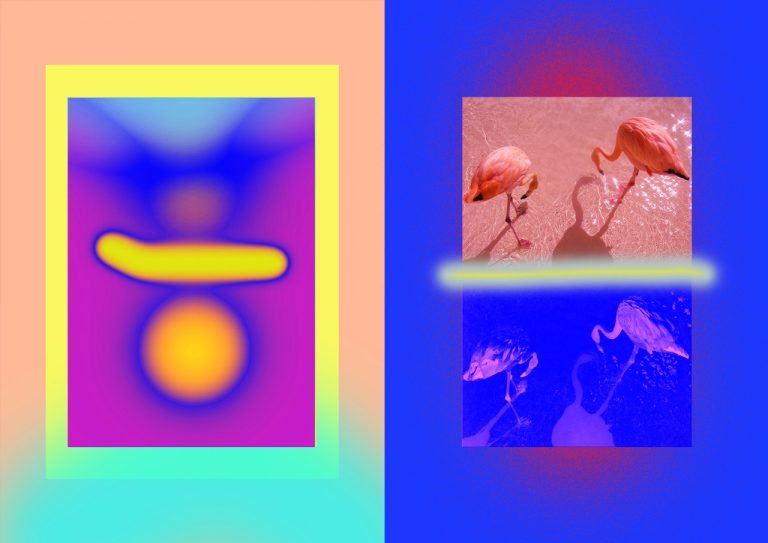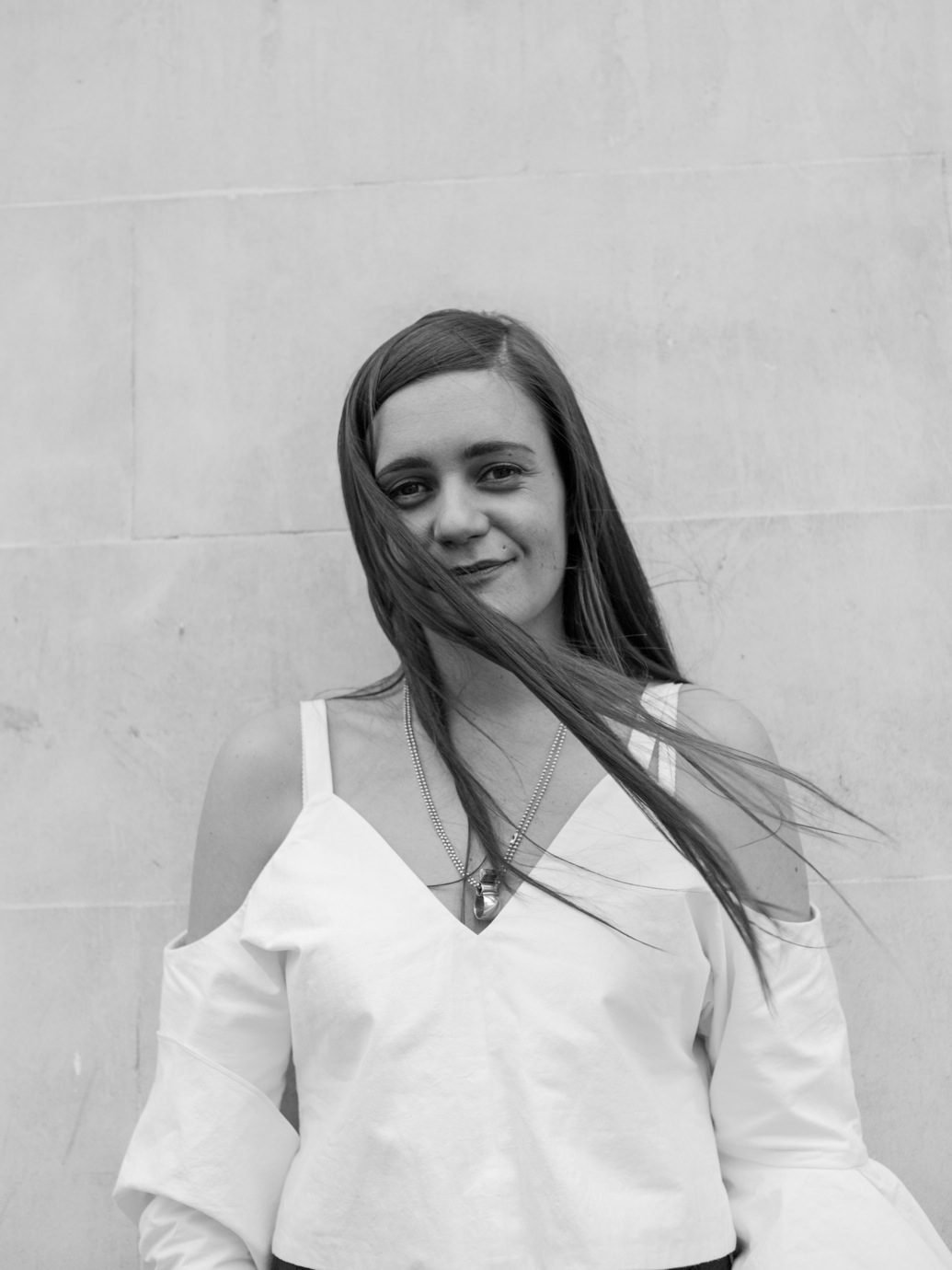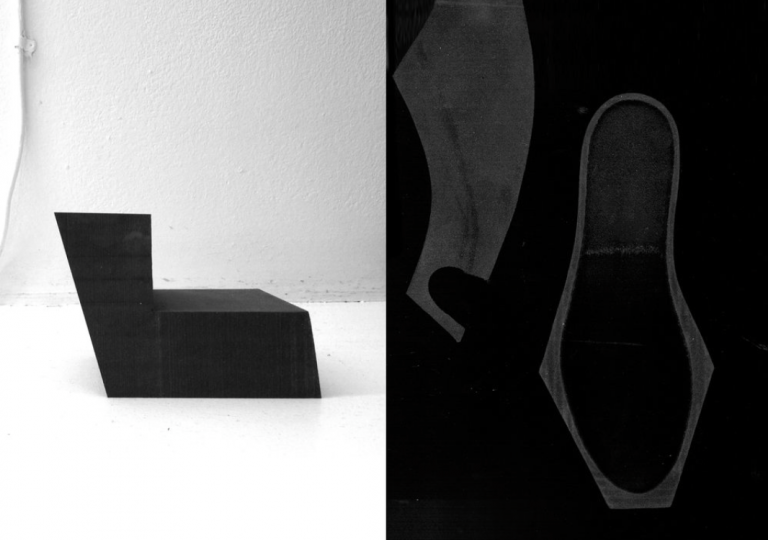Here, the American EDUN represents a new kind of attitude about clothes-making and selling. Founded in 2005 by philanthropes and public figures Ali Hewson and Bono, the brand aims to increase trade and apparel manufacturing in Africa. They recently hired Frenchman Julian Labat as their new Chief Executive Officer, a talented and business-savvy gentleman known and praised for his revitalisation of the brand Carven, for which he oversaw both womens- and menswear.
Sustainability is a paradoxical topic in fashion; at once a trendy marketing tool and the biggest economical and environmental elephant in the room, that is easiest to just ignore. It is not atypical to see brands dedicating collections to certain kinds of sustainability like global warming awareness or animal rights, advocating for green or no-fur policies while completely omitting other prevalent factors such as factory working conditions and problematic or exploitative distribution systems. Not the most sexy topics perhaps, which is why we are seeing a sort of pseudo-engagement with sustainable practice across the continents – in spite of the fact that it has never been more urgent to consider sustainability than now.
EDUN has been described as ‘slow fashion’ – a trend that indicates a radical deceleration of the neo-liberal capitalist fashion industry that we know today, an industry that continuously pushes for faster and larger earnings, often sacrificing all sorts of environmental, social, political and moral responsibilities on the way. The current fashion system — from anxious conglomerate-craving, sponsored fashion students to mega high street empires like Primark — is a symptom of how we consume and think of clothes in a post-fordist society: estranged from production-procedures and cost, not to forget the global system of underpaid labour that sustains it. But while Julien Labat admits that we need to see a global change of attitude towards sustainability from customers, he emphasises the role of the industry to create and respond to a demand of sustainable production: ”It is the producer’s responsibility to provide products that meet these demands; allowing informed consumers to concretise this ideal.”
The lack or absence of sustainable businesses is perhaps due to the utopian nature of much politicised business-thinking – rooted in a history of NGO– and community-projects, rather than the fashion school, catwalk or high street shop. ”Of course, as we all know, the idea is only 10% of a project, the remaining 90% is how you build it,” he explains. ”I strongly believe that EDUN has the potential to become a pioneer in this field. Playing a role in this development seduced me as there is no better challenge than to create an all new business model without existing references. You have to be creative.”
EDUN never faced a big sustainability turn-around of implemented policies, rather, the brand has the economical-social-environmental agenda at the heart of the corporation. Their strategy is radical and innovative, with a permanent engagement with the African continent: currently 95% of EDUN production is done in Africa. A commitment, Labat explains, that is both cultural and economic. ”The African continent has a very old and incredibly rich textile history. In such a difficult economic context, their industry needs to evolve and develop its own assets to grow and become competitive with other continents. Our current partners in Africa used to exclusively produce for local markets. Our challenge is to provide our skills and expertise for them to produce high end and high quality clothing for international companies such as EDUN.” Their current factories in Nairobi, Kenya and Madagascar provide essential jobs in the areas while nourishing a design culture; hopefully one that will help other businesses to grow.
Africa has been on many industry lips in recent years, promised to become increasingly integrated in the international apparel industry. Production in Africa is now competing with China – but the real challenge lies in using this opportunity to establish a healthy and sustainable production culture, rather than the environmentally damaging and socially exploitative industry that has developed in Central and South East Asia.
EDUN is the living proof that for social and environmental sustainability to go beyond its status as superficial marketing-tool, it must be incorporated and rooted in the very centre of a business. ‘Sustainability,’ as vague a term as it may be, is something we need to consider in all aspects of the industry – from the fashion school studio and the sourcing of fabrics to the mega-corporate strategization of global production and distribution. “Commitment is the key value which creates a real point of difference in the fashion industry,” Labat finishes: ”especially at a Designer level.”

